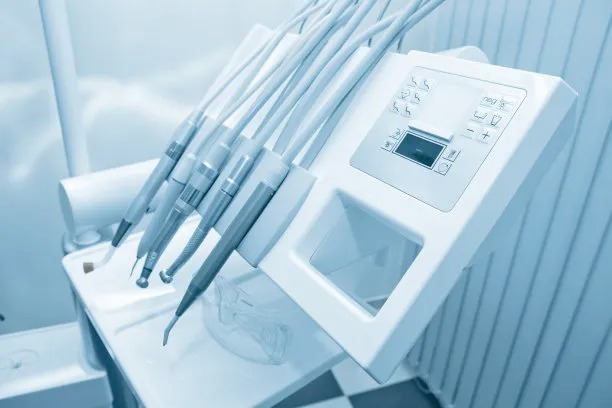Summary: Dental fillings are critical procedures that restore the integrity of affected teeth, but certain precautions before and after your appointment can significantly enhance recovery and overall oral health. This article delineates four essential considerations: Preparing for Your Appointment, Understanding Post-Procedure Care, Dietary Considerations After Filling, and Signs of Complications to Watch For. Each of these aspects will guide patients through the process, ensuring a seamless and effective recovery, while maintaining optimal oral hygiene. By adhering to these guidelines, you can prevent complications and maximize the benefits of your dental treatment.
1. Preparing for Your Appointment

Preparing adequately for your dental filling appointment is essential for a smooth experience. Start by organizing your medical history, including any allergies, medications, or previous dental issues. This information is crucial for your dentist to provide the safest treatment possible. Understanding your medical background may affect the choice of anesthetics or the procedure itself, so don’t hesitate to share all necessary details.
Next, consider scheduling the appointment for a time that allows sufficient recovery. Many dental fillings require time to numb the area and might leave you feeling a bit groggy afterward, especially if sedation is applied. Avoid planning any demanding tasks or appointments immediately following your dental visit to allow yourself to rest appropriately.
Lastly, follow any pre-appointment instructions given by your dentist, such as avoiding food or drinks before the procedure if anesthesia will be used. Awareness of these precautions will prepare you mentally and physically, making the visit more comfortable and efficient.
2. Understanding Post-Procedure Care
After receiving a dental filling, understanding the recommended post-procedure care is vital for optimal recovery. Initially, it is common to experience numbness in the affected area due to anesthesia. To avoid inadvertently biting your cheek or tongue, refrain from eating until the numbness wears off. This can take a few hours, but err on the side of caution to prevent injury.
Follow your dentist’s advice regarding pain management and oral hygiene after the procedure. Over-the-counter pain relievers, if recommended, can help alleviate any discomfort. Moreover, maintain a strict oral hygiene regimen to avoid plaque buildup around the filling site. Gentle brushing and rinsing can keep the area clean and reduce the risk of further issues.
Finally, attend any follow-up appointments as advised by your dentist to ensure the filling is properly fitted and functioning as intended. These check-ups provide an opportunity for your dentist to make any necessary adjustments or address your concerns, ensuring your complete healing.
3. Dietary Considerations After Filling
After your dental filling appointment, considering your dietary choices is crucial for recovery. It’s best to stick to soft foods in the days following the procedure. Foods like yogurt, mashed potatoes, and smoothies are gentle on your teeth and gums, allowing for easier chewing without causing undue stress on your newly filled tooth.
Avoid extremely hot or cold foods, as your teeth might be sensitive for a short period following the filling. Eating warm items that are not overly hot can help you avoid discomfort, while also allowing for better digestion during recovery.
Lastly, steer clear of sticky or hard foods that could dislodge the filling or cause it to wear prematurely. This includes gum and hard candies. Being mindful of your dietary choices can prolong the life of your dental filling while aiding in your overall recovery.
4. Signs of Complications to Watch For
Even after taking necessary precautions, being vigilant about the signs of complications post-filling is essential for maintaining oral health. One major sign to look for is persistent or severe pain at the filling site, which could indicate improper placement or complications in the underlying tooth structure. If discomfort persists beyond a few days, it’s vital to consult your dentist promptly.
Keep an eye on any swelling or signs of infection, such as redness or the formation of abscesses near the filled tooth. These symptoms can manifest early and may require immediate professional attention to prevent further complications.
Lastly, monitor for changes in the filling itself, such as chips or cracks. If you notice any changes, visiting your dentist for an evaluation will ensure the longevity of your dental restoration and solve potential problems early.
Summary:
In conclusion, taking a comprehensive approach to your dental filling appointment can significantly impact your recovery and oral health. By preparing adequately, following post-procedure care guidelines, being mindful of your dietary choices, and watching for signs of complications, you are setting yourself up for success. Your dental health is incredibly important, and taking these precautions can help you maintain a beautiful, healthy smile.
This article is compiled by Vickong Dental and the content is for reference only.
Vickong Dental
Vickong Dental is a large medical group established in Hong Kong in 2008 by professors from well-known medical universities in Guangdong and Hong Kong, as well as medical doctors from key national '985' universities (including Master's supervisors and senior professors). The chain of branches brings together expert dentists with PhDs and Master's degrees from Hong Kong and Mainland China, committed to providing high-quality dental treatment.
"Vickong Dental Practices the University Motto of 'Healing and Serving Society,' with a Stable Operation for Sixteen Years. It Has Been honored with Hong Kong Enterprise Leaders's Choice,' and is a Global Trusted Implant Center for the Nobel Implant System. Recommended by Hong Kong Metro Broadcast and Guangdong Television, it Serves Customers from Over Thirty Countries and Regions, Gaining the Trust and Favor of Citizens from the Guangdong-Hong Kong-Macau Greater Bay Area and Surrounding Cities.

Thousands of customers' unanimous praise
The most recognized and highly recommended dental service by customers in the Guangdong-Hong Kong-Macau Greater Bay Area
We Ensure You Receive Detailed Care and Attention Here
Hong Kong standards, Shenzhen prices, Your Trusted English-speaking dentists

Vickong Dental Medical-Grade Instrument Disinfection Process
Vickong Dental Medical-Grade Instrument Disinfection Process

Vickong Dental Chain: A Warm and Comfortable Environment for Treatment






Appointment Hours

Q&A
Why choose Vickong Dental?
Vickong Dental practices the university motto 「Medicine to Benefit Society」, with each branch bringing together highly qualified dentists with doctoral and master’s degrees from Hong Kong and the Mainland, and has maintained seventeen years of steady operation。Recipient of 「2024 Hong Kong Enterprise Leaders Brand」, 「2025 Hong Kong Enterprise Leaders Brand」, a Nobel Biocare Global Trusted Implant Center, and a brand recommended by Metro Radio Hong Kong and Guangdong TV。
To date, we have served customers from more than thirty countries and regions,earning exceptionally high word-of-mouth recognition and trusted recommendations from residents across the Guangdong-Hong Kong-Macao Greater Bay Area and surrounding cities
We have eight major branches in Zhuhai、Shenzhen,and a consultation and service assurance center in Hong Kong,so you can book a free consultation at any time for any questions,which is very reassuring.
If I do not accept the quotation after the CT scan, will I be charged??
No! As long as the actual treatment has not started, you will not be charged any fees.
Will there be any additional charges during the treatment process?
No, there won’t be any additional charges. Before treatment begins, we will clearly explain the treatment plan and its corresponding fees. Only after the patient agrees and signs the consent form will we proceed with the dental service.
Can I pay in Hong Kong dollars?
Yes. Vickong Dental accepts payment in Hong Kong dollars. The amount will be converted based on the exchange rate of the day, and the applicable rate will be clearly communicated to you in advance.
Can I reschedule my appointment at any time?
Yes. Please contact us via **WeChat** or **WhatsApp** as early as possible, providing your original appointment time and details, along with your preferred new date and time slot for rescheduling.













